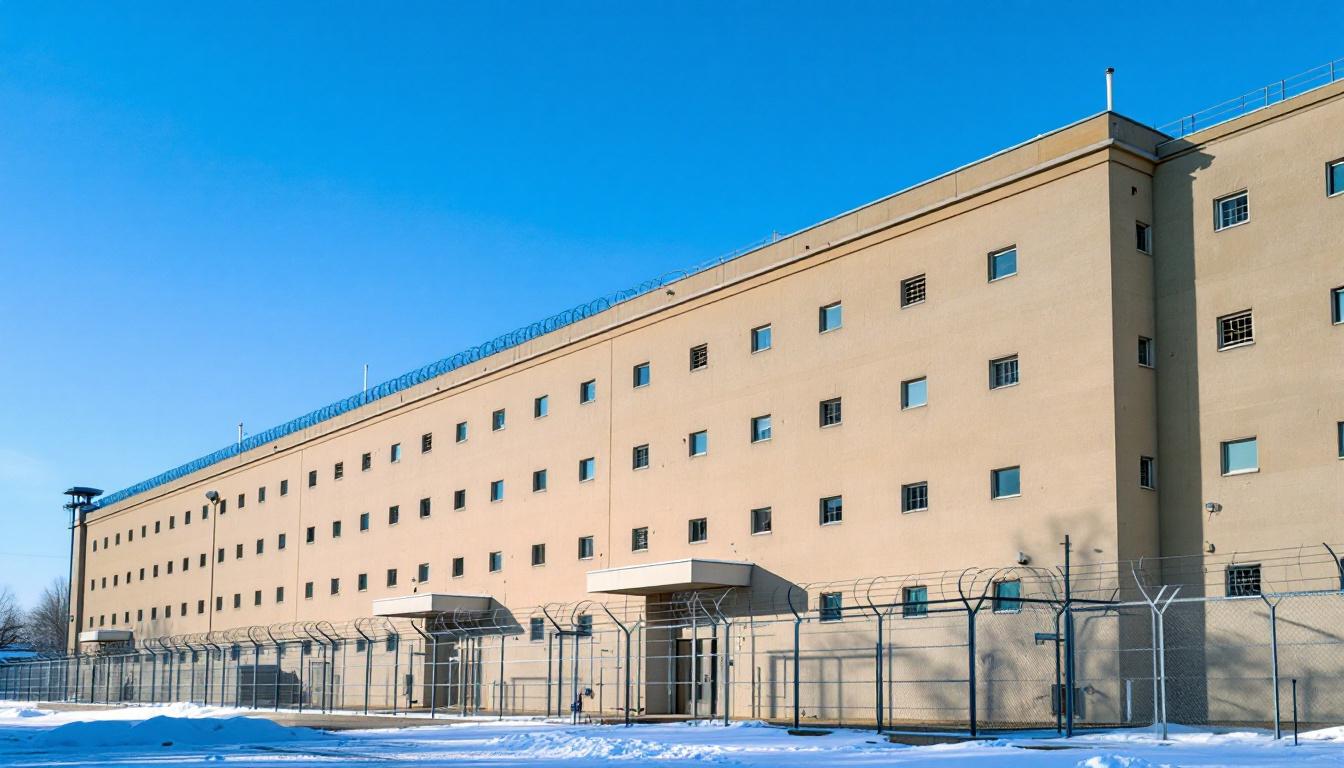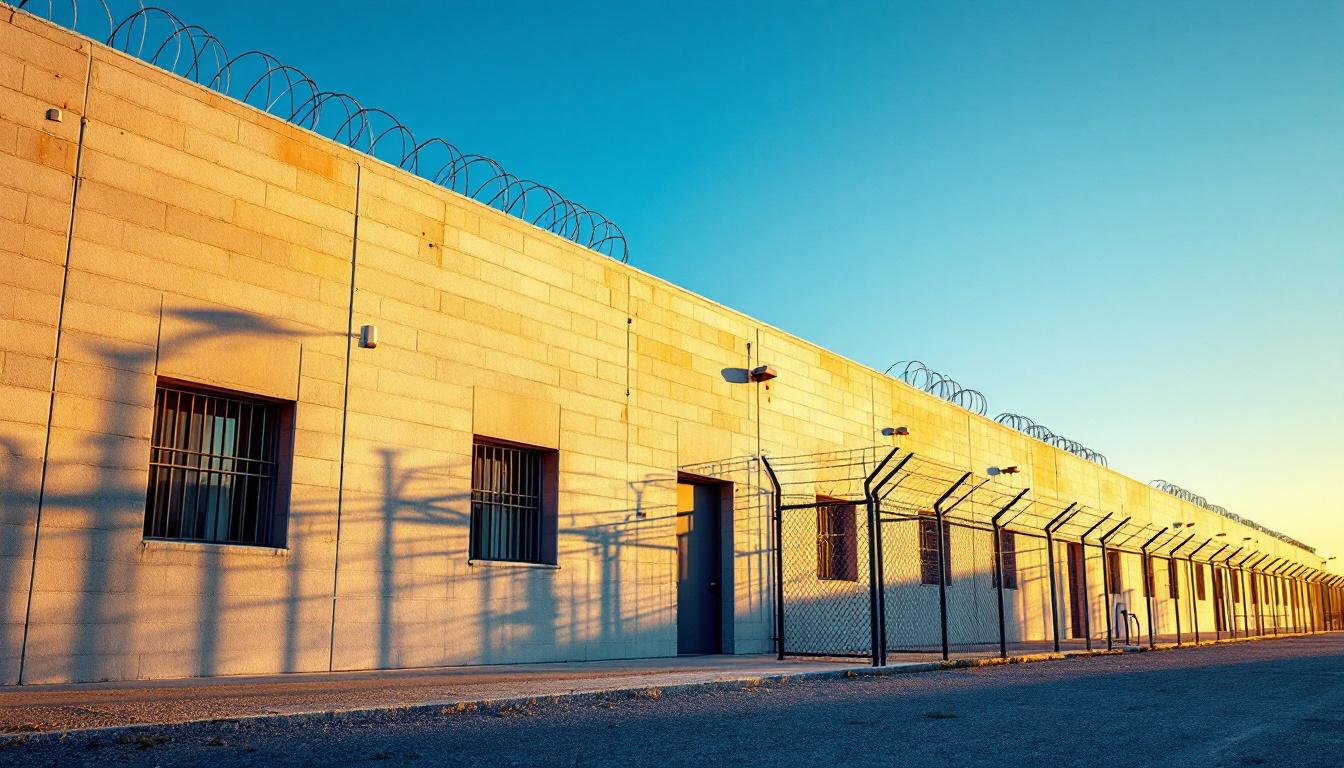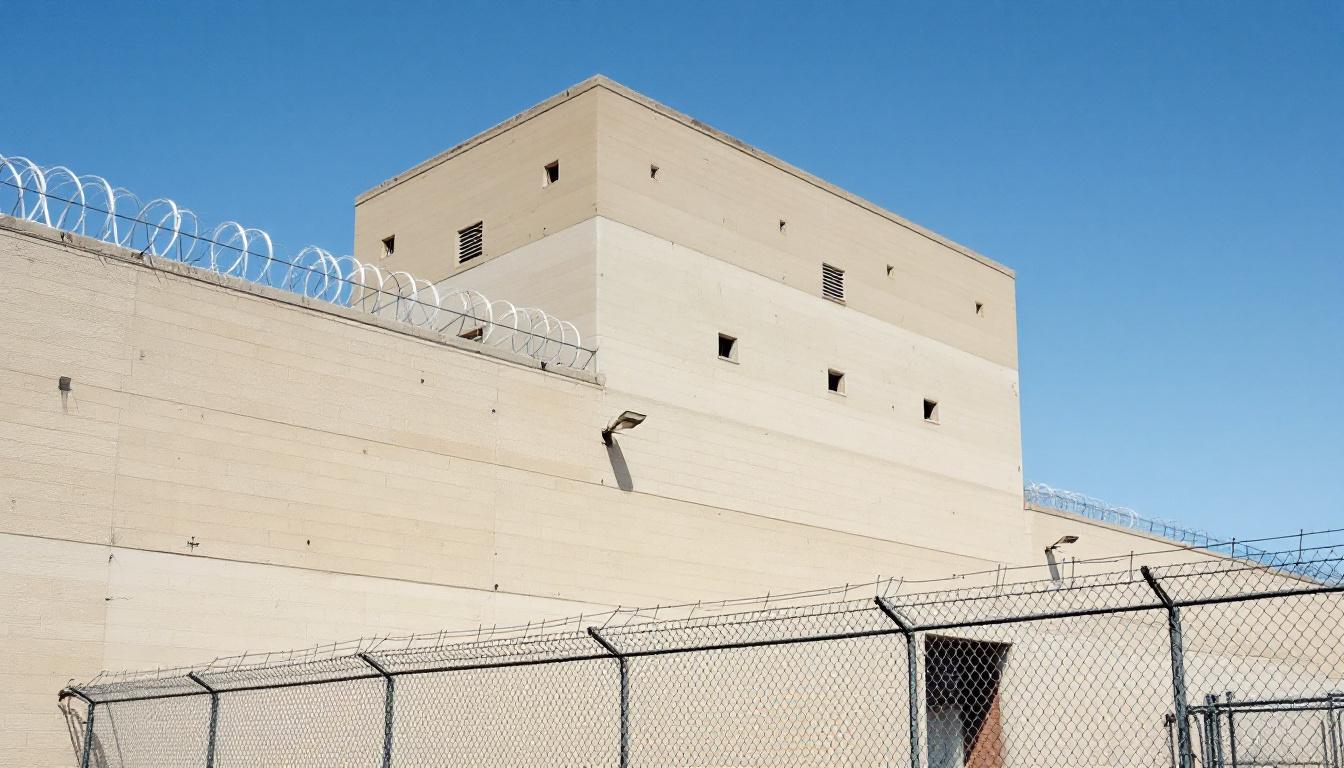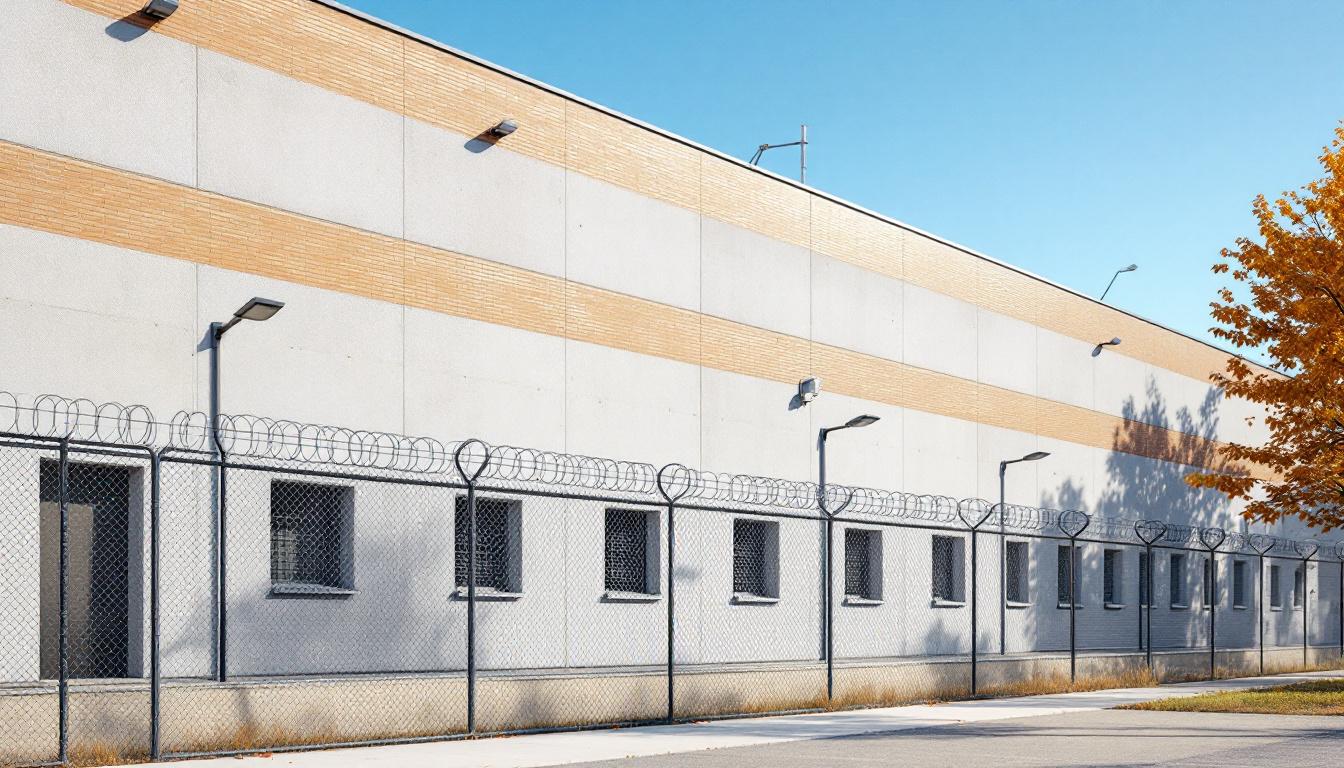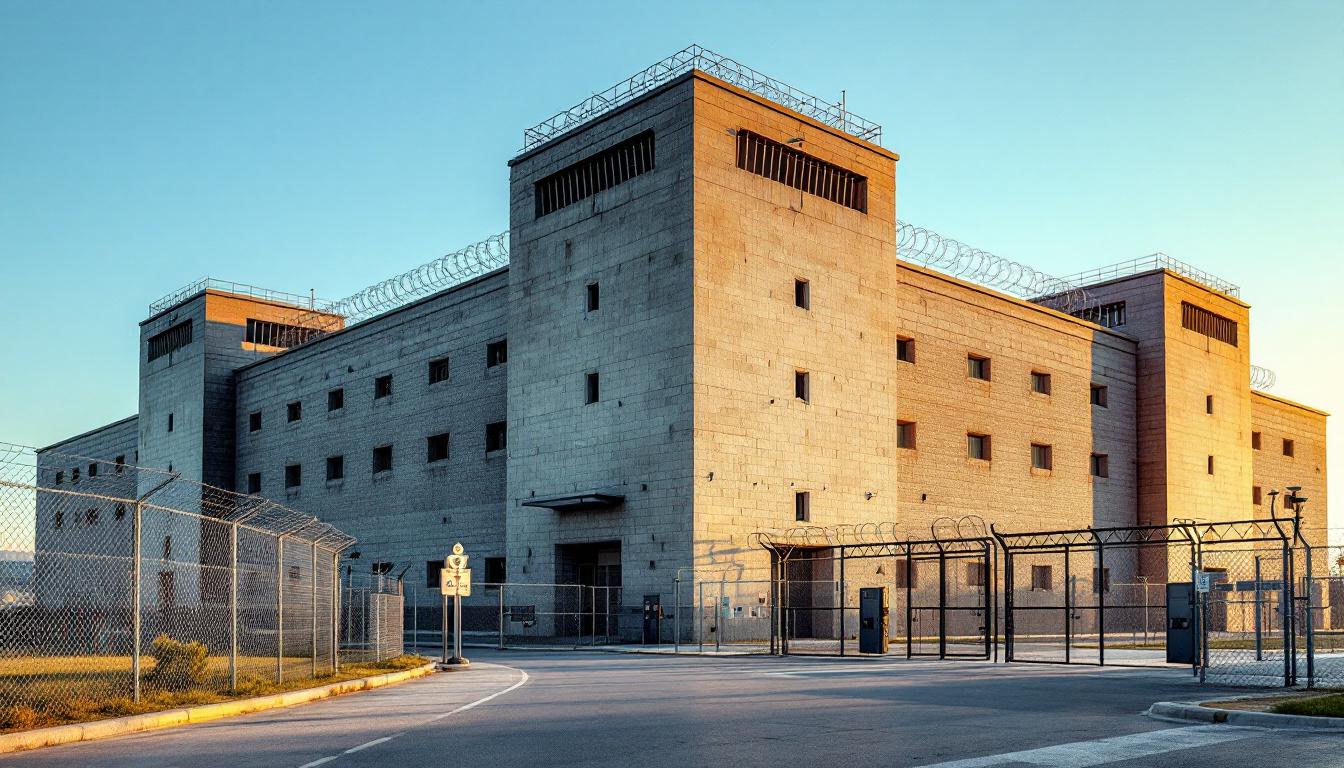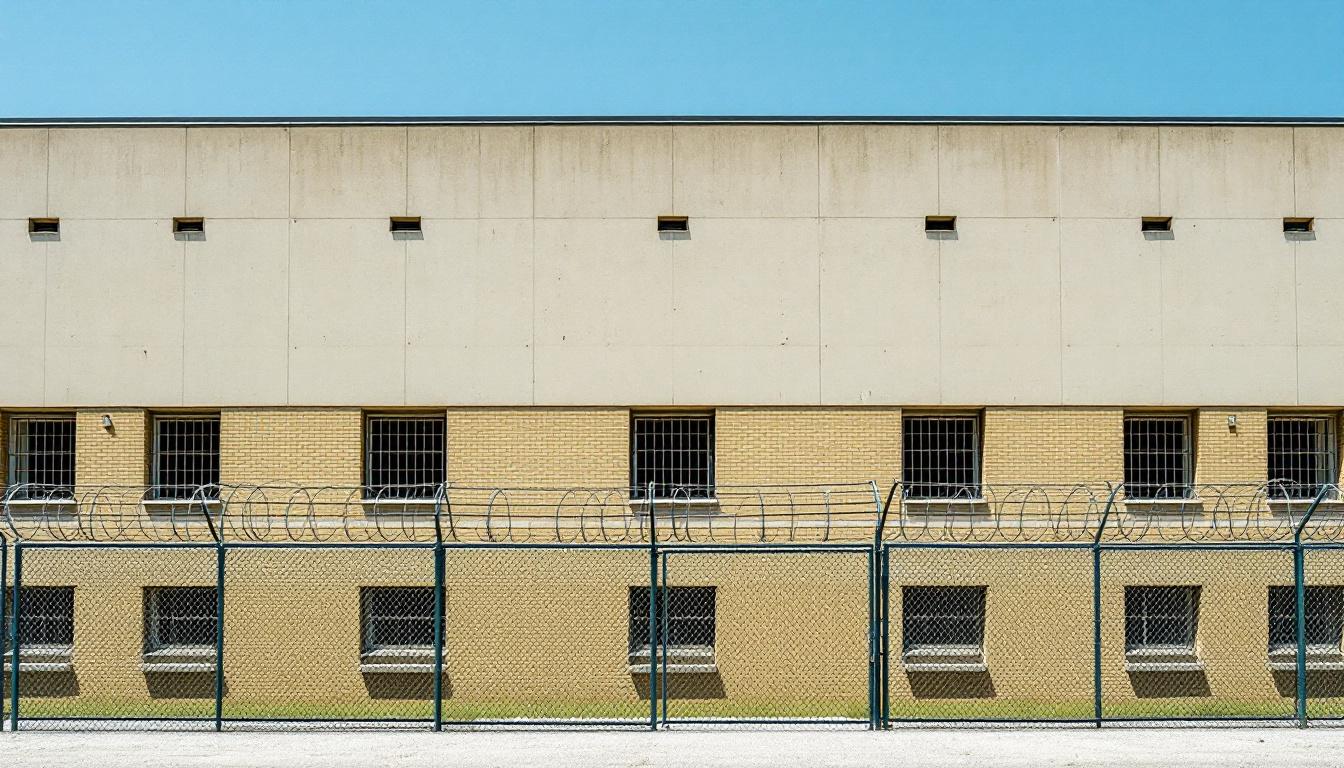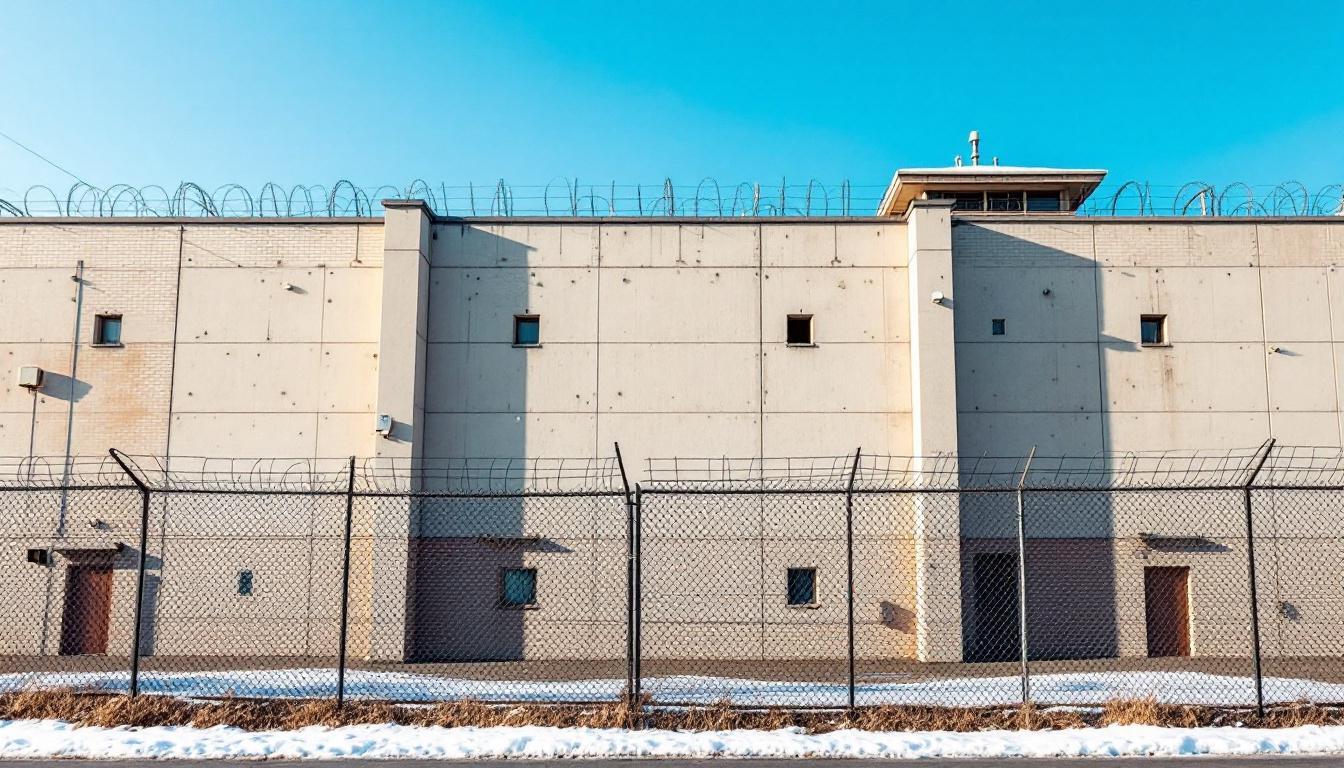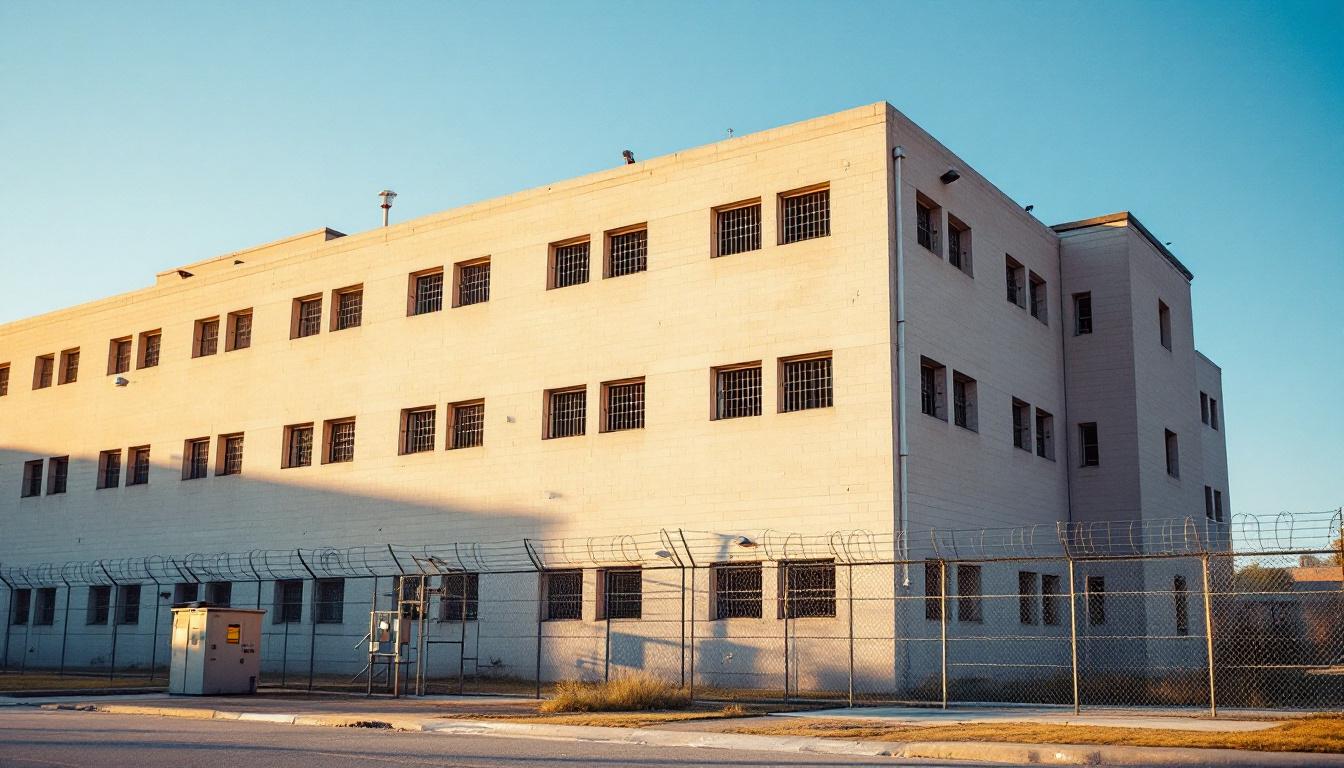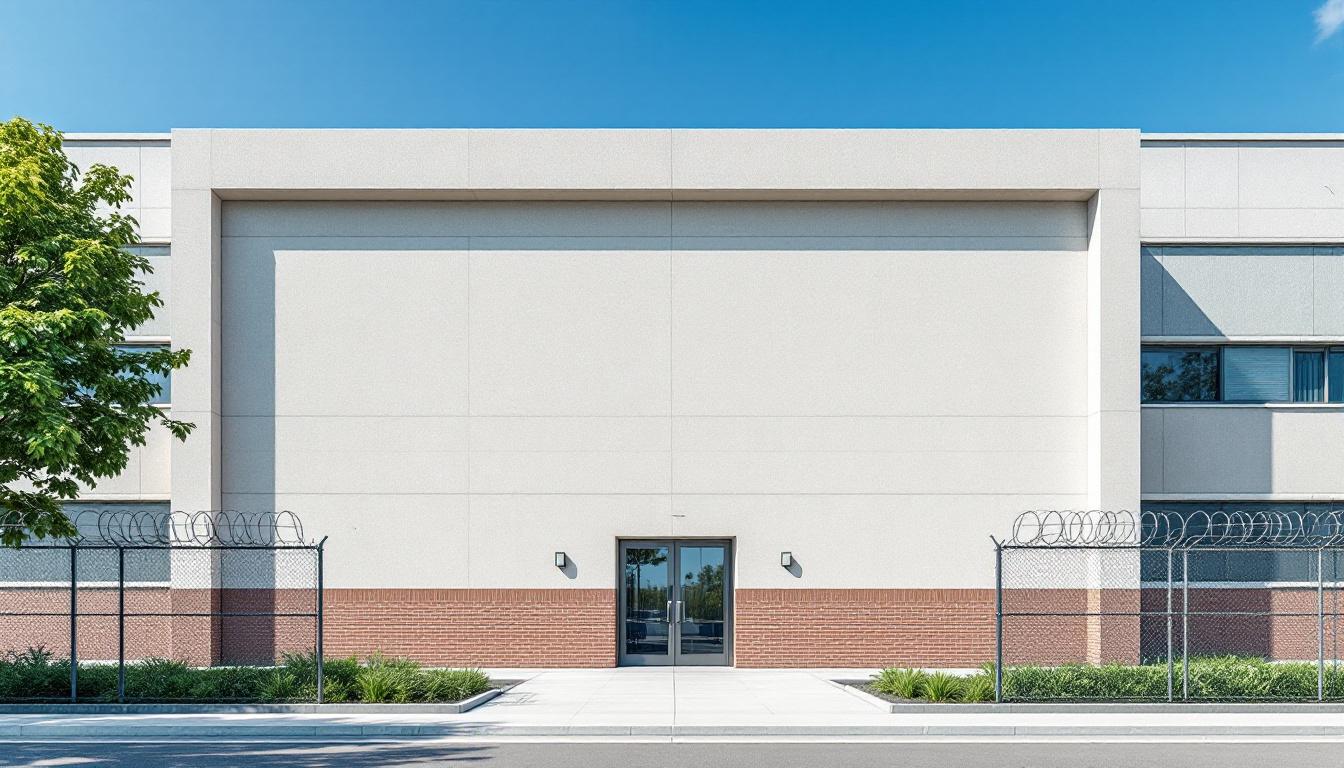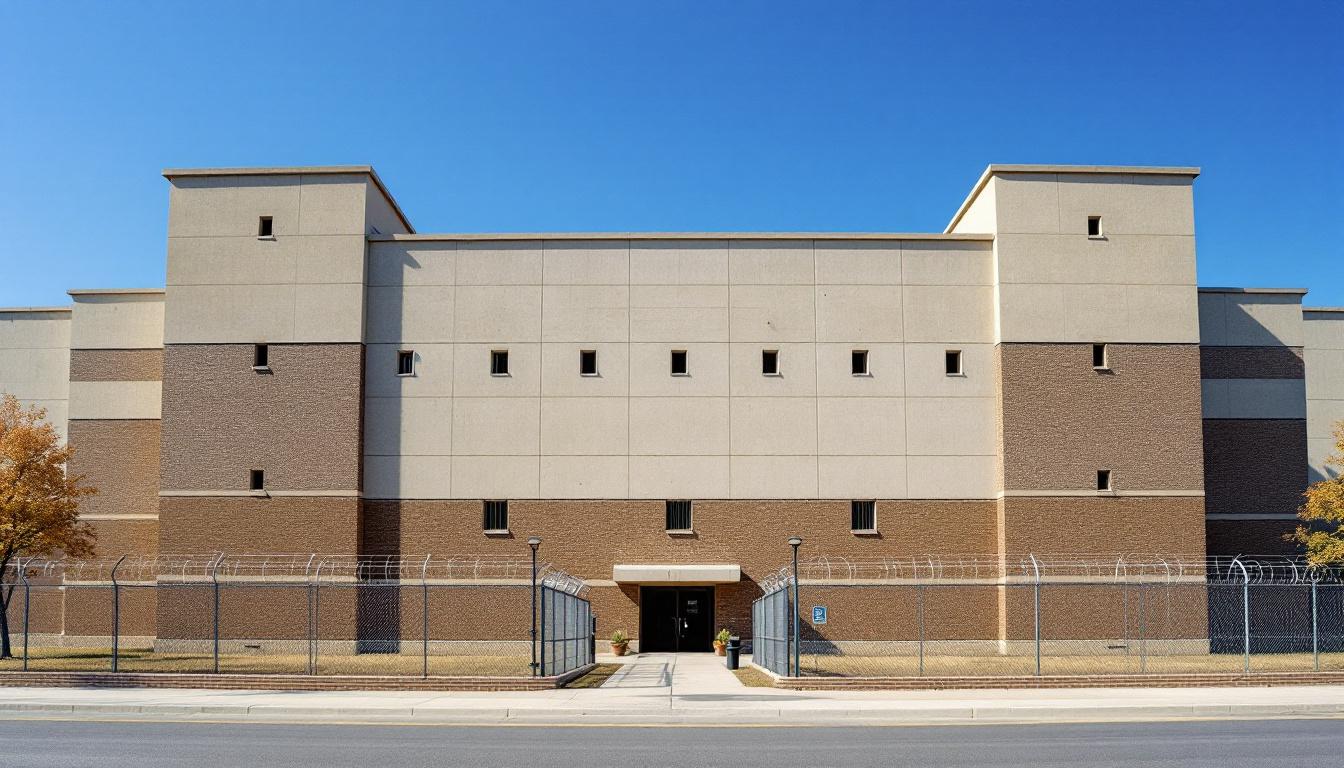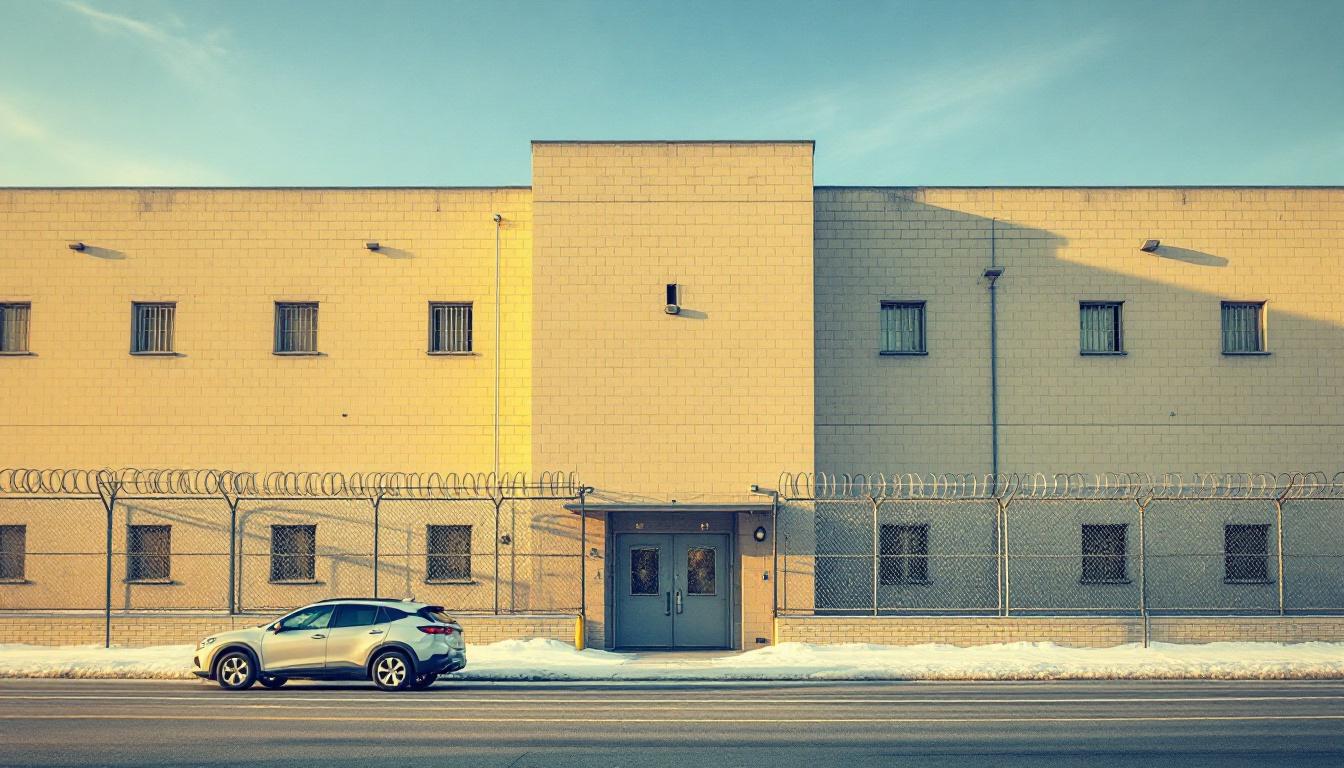
Quick Navigation
How to contact an inmate at Heard County Jail
This comprehensive guide will walk you through how to connect with an inmate at Heard County Jail. Follow the steps below to find an inmate and send letters and photos:
- Search for the inmate using our search tool below
- Create your account or log in to Penmate
- Write your message (up to 6,000 characters)
- Send instantly - inmates receive printed copies daily
Find an Inmate
Search for an inmate to start communicating today
Tip: You can search by first name, last name, or inmate ID number
To contact a person at Heard County Jail start by searching for the person on the official facility website. Perform a search by following these steps:
- Step 1: Enter their first name and last name into the search form and click "Search"
- Step 2: Locate their inmate record
- Step 3: Write down their Inmate ID and any housing information provided
Important! Be sure to enter the person's full name. Nicknames should not be used.
How to Send Messages to Inmates

You can use your phone or computer to send emails, letters, and photos to an inmate. Messages are sent electronically to inmate tablets or kiosks at the facility. If you would like to send a message, start by searching for an inmate at Heard County Jail.
Sending Photos and Postcards

A great way to send love and support to a loved one at Heard County Jail is to send photos and postcards. It only takes a few minutes to send photos from your phone and it makes a huge difference. You can also mail postcards with words of support and inspiration, or design your own postcard for special moments like birthdays and holidays.
Important! Be sure not to send any explicit photos or they may not be approved by the facility. You can also use a photo printing app like Penmate to make sure your photos are printed at the correct size (4x6 or 3x5) and are mailed according to the rules and regulations of Heard County Jail.
Frequently asked questions about Heard County Jail
-
How long does it take to deliver a message?
If you're sending an email message your letter is usually delivered within 24-48 hours. For messages sent via mail you should expect delivery within 3-7 days. All messages will need be approved by Heard County Jail.
-
How much does it cost to send a message to Heard County Jail?
You can send a message free using your phone or mail a message via USPS for the price of a $0.60 stamp and envelope. You can also purchase credits or e-stamps from services starting at $1.99.
-
What services can I use to contact an inmate at Heard County Jail?
Penmate
You can use Penmate to send letters and photos to an inmate from your phone. It's an easy way to stay in touch during your loved one's incarceration. Use the inmate locator to find an inmate's location and contact information, then you can send messages within a few minutes.
Securus messaging
Securus may be another option for communicating with an inmate at Heard County Jail. You can create a friends and family account and purchase credits to send messages. All messages will be reviewed and must be approved by the facility.
JPay
Some county jails and state prisons may support sending messages with JPay. You must register an account with the system, find your loved one, and purchase stamps to send messages. For some locations you can also attach photos.
Smart Jail Mail
You may also check if Smart Jail Mail is available at Heard County Jail. Smart Jail Mail is operated by Smart Communications and has contracted with some state and county jails. After purchasing credits, your messages and photos are sent to the facility, printed out, and then handed out to your loved one.
-
What is the mailing address of Heard County Jail?
Mailing address:
Heard County Jail
11820 GA-100
Franklin, GA 30217
Phone: (706) 675-3329Business hours:
- Monday: 8:00 AM – 5:00 PM
- Tuesday: 8:00 AM – 5:00 PM
- Wednesday: 8:00 AM – 5:00 PM
- Thursday: 8:00 AM – 5:00 PM
- Friday: 8:00 AM – 5:00 PM
- Saturday: Closed
- Sunday: Closed
-
What are the visiting hours at Heard County Jail?
Visiting hours at Heard County Jail vary by housing unit and security level. Generally, visits are scheduled on weekends and holidays, with some facilities offering weekday visits. Contact the facility directly at (706) 675-3329 or check their website for the current visiting schedule. Visits typically last 30-60 minutes and must be scheduled in advance.
-
What items are prohibited when sending mail to Heard County Jail?
Prohibited items typically include: cash, personal checks, stamps, stickers, glitter, glue, tape, staples, paperclips, polaroid photos, musical or blank greeting cards, hardcover books, magazines with staples, and any items containing metal or electronics. Only send letters on plain white paper with blue or black ink. Photos must be printed on regular photo paper (no Polaroids). Always check with Heard County Jail for their specific mail policies.
-
How do I send money to an inmate at Heard County Jail?
You can send money to an inmate at Heard County Jail through several methods: 1) Online using JPay, Access Corrections, or the facility's approved vendor, 2) Money orders mailed directly to the facility with the inmate's name and ID number, 3) Kiosks located in the facility lobby, or 4) Over the phone using a credit or debit card. Fees vary by method, typically ranging from $2.95 to $11.95 per transaction.
-
Can I schedule a video visit with an inmate at Heard County Jail?
Many facilities now offer video visitation as an alternative to in-person visits. At Heard County Jail, video visits may be available through services like Penmate, Securus Video Connect, GTL, or ICSolutions. Video visits typically cost $10-20 for 20-30 minutes and must be scheduled in advance. You'll need a computer or smartphone with a camera and reliable internet connection. Contact the facility for their specific video visitation policies and approved vendors.
-
What identification do I need to visit an inmate at Heard County Jail?
All visitors must present valid government-issued photo identification such as a driver's license, state ID, passport, or military ID. Minors must be accompanied by a parent or legal guardian who can provide the minor's birth certificate. Some facilities require visitors to be on the inmate's approved visitation list, which may require a background check. Contact Heard County Jail for specific ID requirements and visitor approval procedures.
-
How can I find out an inmate's release date?
To find an inmate's release date at Heard County Jail, you can: 1) Use the online inmate search tool if available, 2) Call the facility's records department, 3) Contact the inmate's case manager or counselor, or 4) Have the inmate provide this information during a call or visit. For privacy reasons, some facilities only release this information to immediate family members.
Facility Overview
Official Website
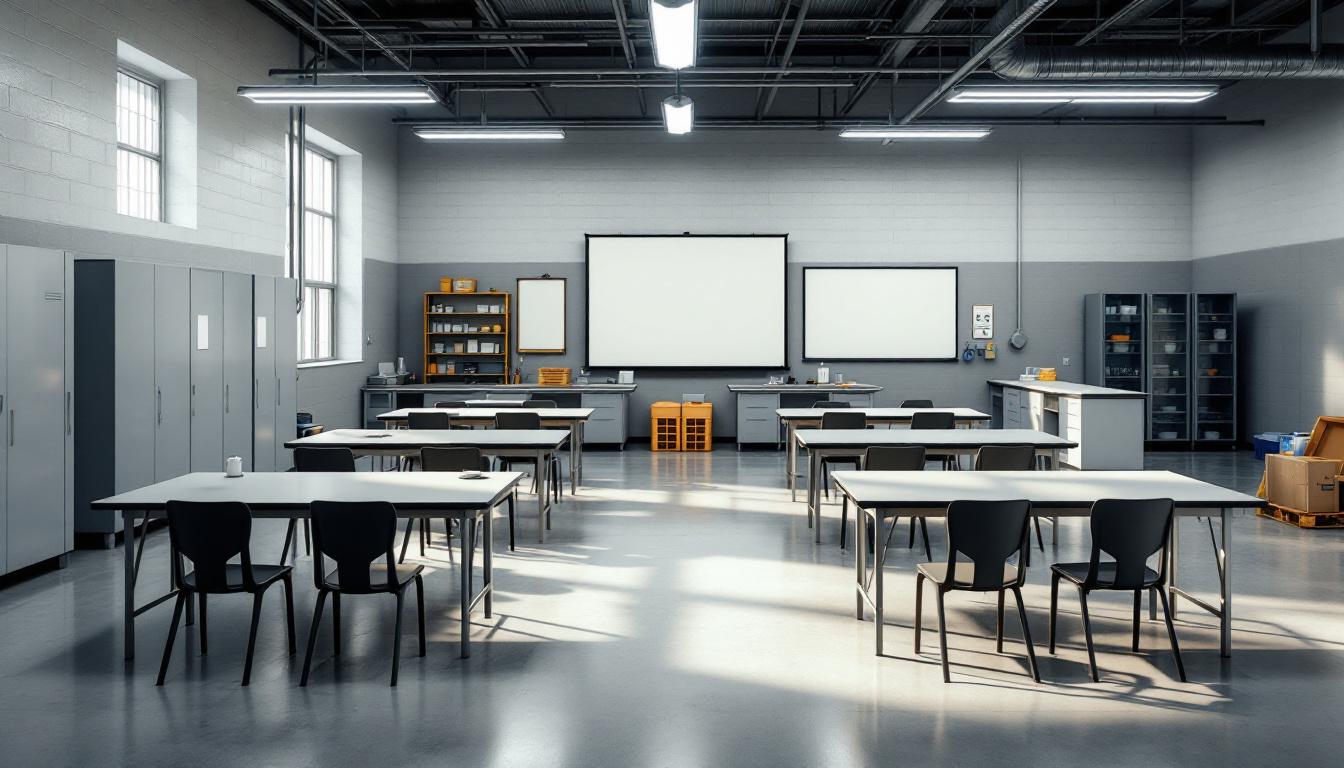
About Heard County Jail
Nestled within Franklin's rural landscape, the Heard County Jail, GA operates as a cornerstone of public safety for this close-knit community, where agricultural traditions meet modern correctional practices. This GA correctional facility serves the residents of Heard County by maintaining secure custody of individuals awaiting trial or serving shorter sentences, while simultaneously working to address the underlying factors that contribute to criminal behavior. The facility's geographic position in west-central Georgia places it within a network of county and state correctional institutions that collectively support the state's broader rehabilitation and public safety objectives.
The jail typically houses inmates awaiting court proceedings as well as those serving sentences for misdemeanor offenses, operating within Georgia's structured correctional framework that emphasizes both accountability and preparation for successful community reintegration. Inmates services may include educational programming, substance abuse counseling, and work opportunities that help individuals develop practical skills during their incarceration. The facility generally maintains connections with local courts, probation services, and community organizations to ensure a coordinated approach to justice that reflects both state correctional goals and the specific needs of Heard County residents.
As part of Franklin's commitment to effective criminal justice, this county jail often provides various support services designed to address the root causes of criminal behavior while maintaining the security necessary to protect both inmates and the surrounding community. The facility's operations typically align with Georgia's emphasis on evidence-based practices in corrections, potentially offering programs that focus on mental health support, job readiness training, and family communication services that help maintain important community connections during incarceration.
Programs & Services
Transformative personal development lies at the heart of the rehabilitative philosophy that guides service delivery at Heard County Jail. Rather than merely serving as a period of confinement, incarceration becomes an opportunity for inmates to engage in meaningful self-improvement through carefully structured interventions. This comprehensive approach recognizes that sustainable behavioral change requires addressing multiple dimensions of an individual's life, from foundational literacy skills to spiritual growth and family relationships.
Educational services typically form the cornerstone of personal development efforts, with programs designed to address varying levels of academic preparation among the inmate population. Basic literacy and numeracy instruction may provide essential foundational skills, while civic education components often focus on developing responsible citizenship and understanding of legal obligations. Moreover, vocational training services frequently include specialized instruction in trades such as welding, equipping participants with marketable skills that enhance their prospects for successful reintegration into the workforce upon release.
Faith-based services often serve as a vital component of the facility's holistic approach to rehabilitation, providing spiritual guidance and moral development opportunities for interested inmates. Community resource connections typically facilitate ongoing support networks that extend beyond the period of incarceration, while family reunification services may focus on rebuilding and strengthening relationships that are crucial for long-term stability. These interconnected support systems work collectively to address the complex personal, social, and economic factors that contribute to recidivism, fostering an environment where genuine transformation becomes possible.
Daily Life & Visitation

The concrete walls and steel fixtures of the housing units at Heard County Jail create an institutional environment where inmates must quickly learn to navigate the structured rhythms of correctional life. Today, inmates typically wake to the sound of morning count, followed by breakfast service that consistently marks the beginning of each day's carefully orchestrated schedule. The facility generally maintains regular meal times, work assignments, and recreational periods that provide essential structure to daily routines.
Moreover, living accommodations usually consist of shared cells or dormitory-style housing units where inmates adapt to limited personal space and the constant presence of others. The facility typically provides basic necessities including bedding, hygiene items, and uniforms, while inmates may often purchase additional comfort items through the commissary system. Whereas privacy becomes a luxury, inmates generally develop coping strategies and form social connections that help them manage the challenges of confined living conditions.
The jail often offers various programming opportunities that provide both structure and skill development, including educational classes, religious services, and work assignments within the facility. Recreation time typically includes access to television areas, reading materials, and limited outdoor exercise when weather and security conditions permit. Family connections remain vital through scheduled visitation periods and phone privileges, which generally allow inmates to maintain important relationships with loved ones during their incarceration. These communication opportunities often serve as crucial emotional support systems that help inmates cope with the stresses of daily institutional life.
Ready to Connect?
Start communicating with your loved one today
Search for an Inmate
